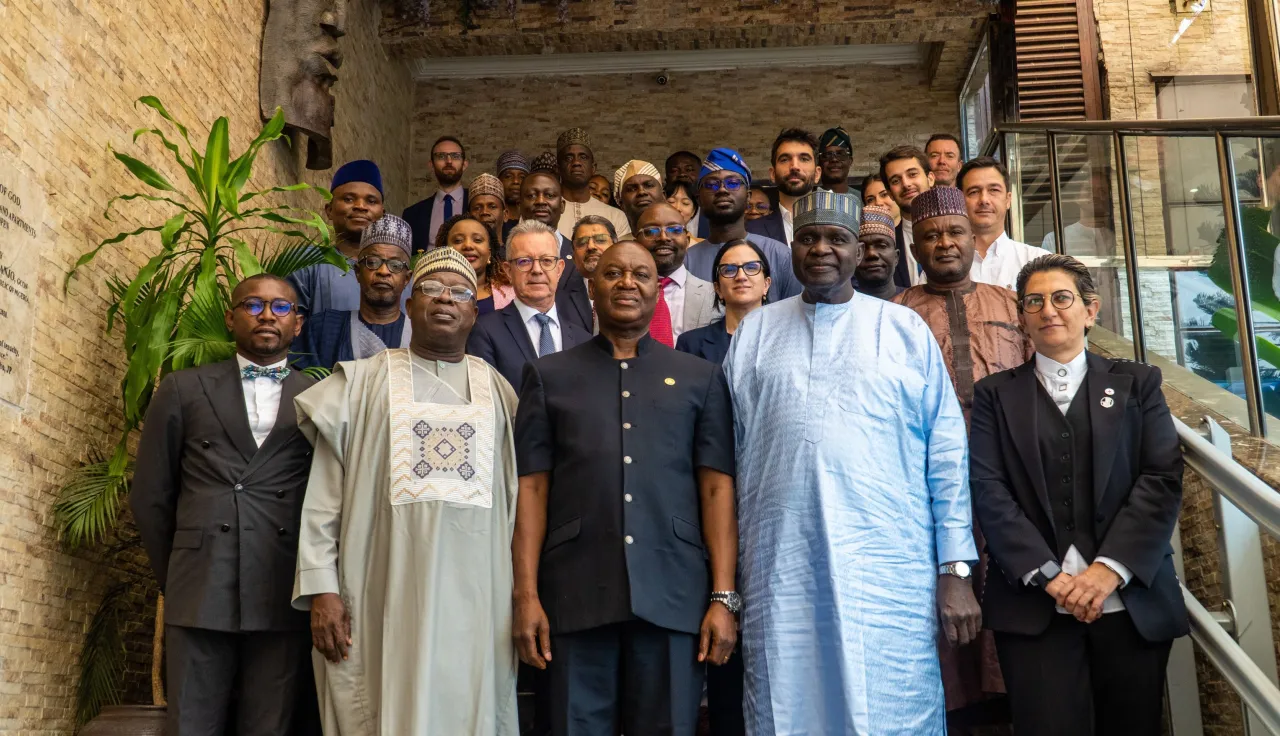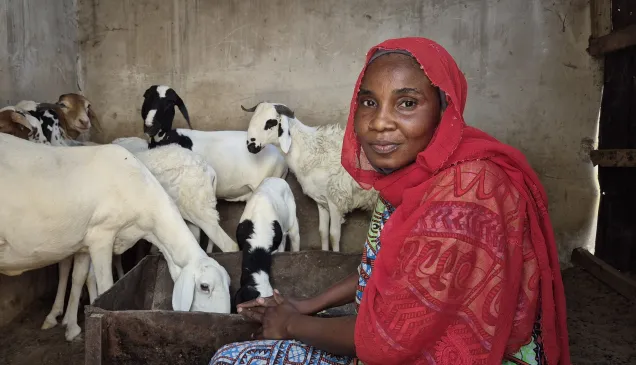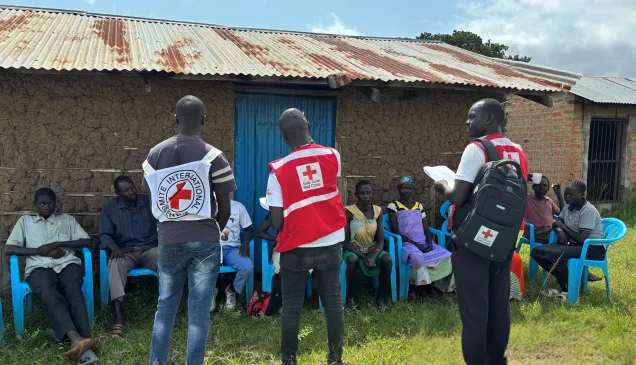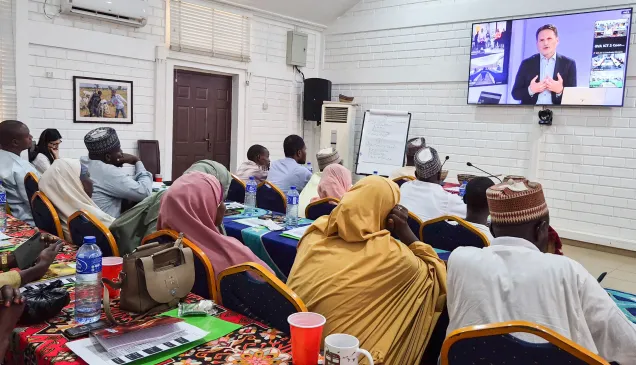Abuja – The first high-level partnership roundtable on the Maiduguri Urban Water Supply Masterplan concluded on 10 September 2025 in Abuja. This project offers a clear, phased roadmap to rehabilitate and expand the city’s water system to sustainably meet the growing needs of 2.5 million people by 2030.
The roundtable was co-convened by the International Committee of the Red Cross (ICRC) and the African Development Bank (AfDB), in partnership with the Ministry of Water Resources and the Borno State government. It brought together about 40 senior government officials, representatives from humanitarian organizations, the Nigeria Development Partners Group, international financial institutions and technical experts. Among the attendees was the representative of the Governor of Borno State, Secretary to Borno State Government Malam Bukar Tijani.
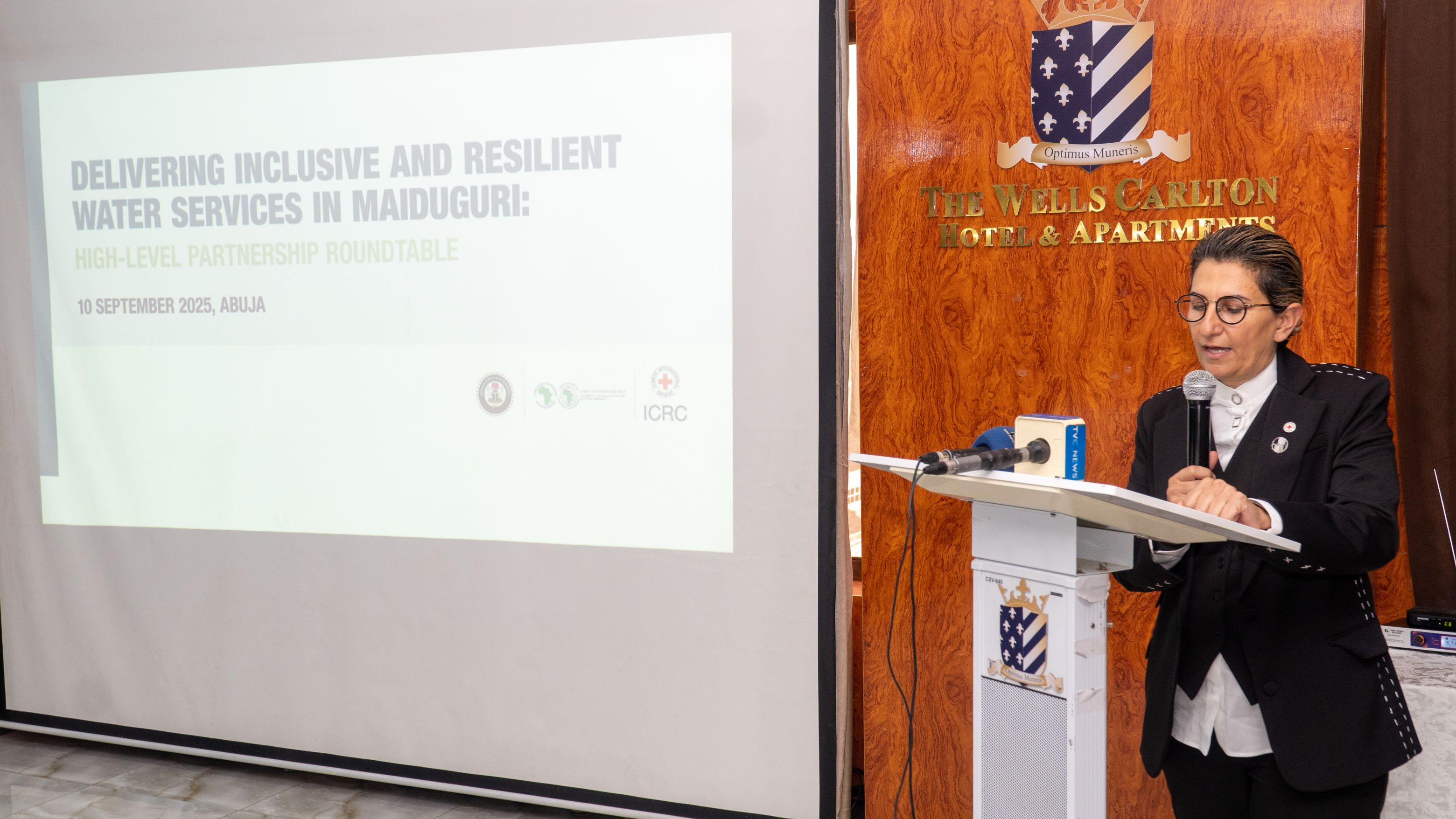
“The humanitarian–development link is not just a concept; it is a lifeline. In today’s world of protracted crises, we must respond to urgent needs while investing in long-term resilience, to enhance the overall impact of humanitarian action and create conditions to prevent conflict and setbacks to development,” said Doris El Doueihy, head of the ICRC delegation in Nigeria.
Since 2009, Maiduguri, the capital of Borno State has been at the epicentre of conflict in northeastern Nigeria. The city has experienced rapid urban growth due to displacement and climate shocks. Between 2006 and 2021, its population more than doubled and could surpass 2.5 million by 2030, which would put a strain on limited infrastructure.
Currently, the public water system only partially meets the demand, forcing most households to rely on unsafe, costly, and non-potable private boreholes, especially for women and children who must risk fetching water far from home. The floods in 2024 further highlighted the water system’s extreme vulnerability to climate change and conflict. The ICRC proposed the water project to the Borno State Ministry of Water Resources, designed and launched it by leveraging its humanitarian mandate, technical expertise and operational access. The project was formally endorsed by the state government in May 2023.
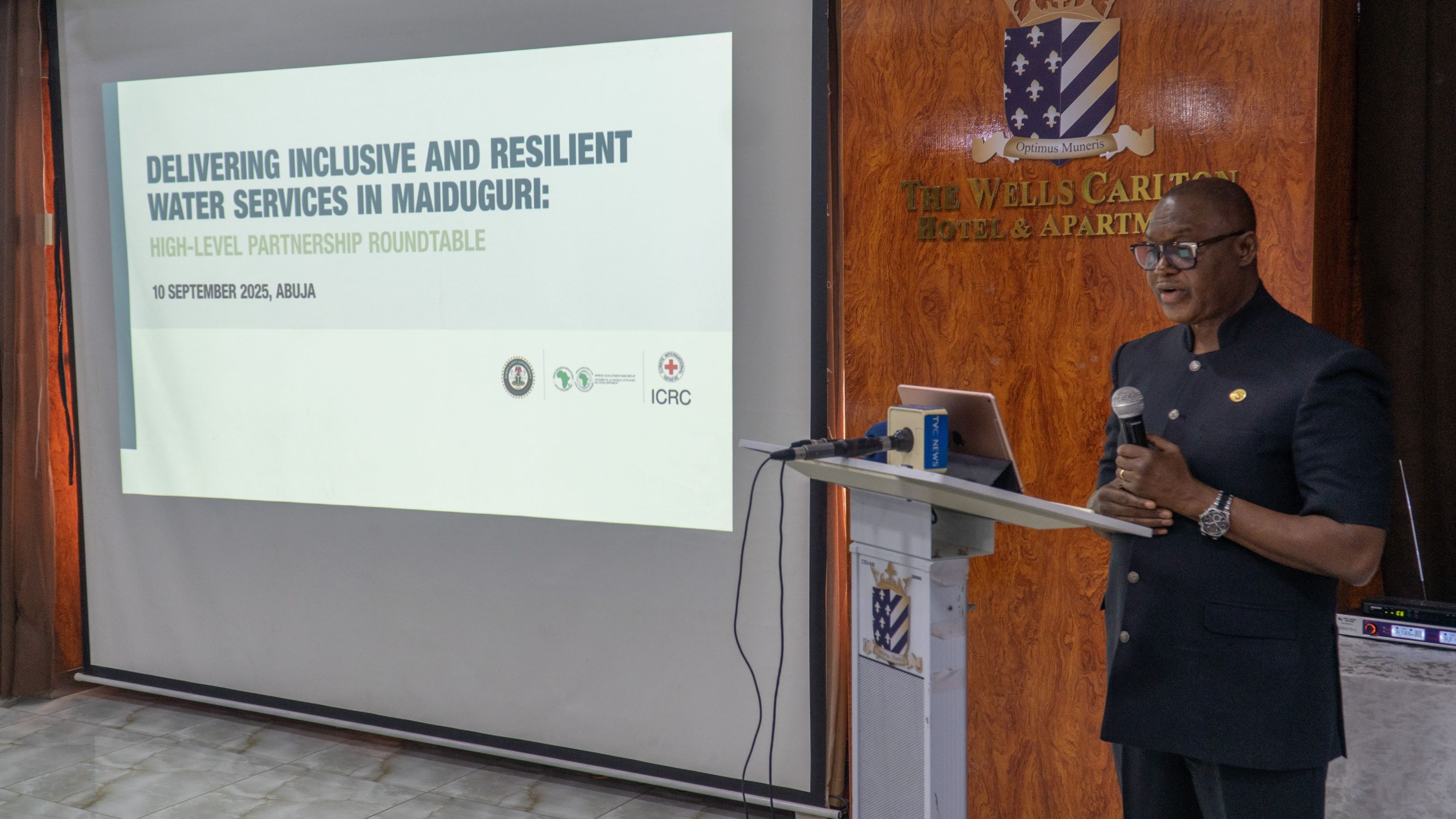
The ICRC has a longstanding operational presence in Borno State, supporting essential services and infrastructure. In collaboration with local authorities, it has contributed to the repair and rehabilitation of boreholes and water systems across displacement camps and hard-to-reach areas. In Maiduguri, recent urban water projects have improved access for more than 150,000 residents, with additional expansion underway. These efforts build on a broader strategy to assess essential service gaps, renovate public infrastructure and promote environmental sustainability in conflict-affected settings.
“Water, resilience and peace are closely connected. Investing in water is central to the African Development Bank’s Strategy for Addressing Fragility and Building Resilience in Africa,” said Director General for Nigeria Dr. Abdul Kamara. “Through initiatives like the Inclusive Basic Service Delivery Project and strong partnerships with the Nigerian government and institutions like the ICRC, we aim to help northern Nigeria move from recurring humanitarian crises to a future of stability, resilience and sustainable development.”
The African Development Bank has invested over USD 805 million in water and sanitation projects across Nigeria over the past decade, providing access to safe water and sanitation for at least eight million people. These investments are helping to support communities, strengthen systems and drive sector-wide reforms across the country.
During the conference, a joint urgent call for action was issued, in which the state government committed to establishing a steering committee, mobilizing resources and collaborating effectively with development partners to implement the masterplan.

